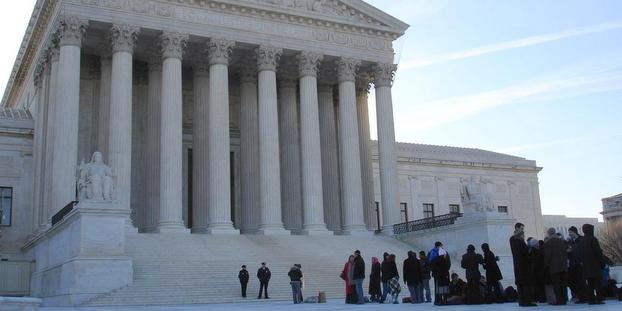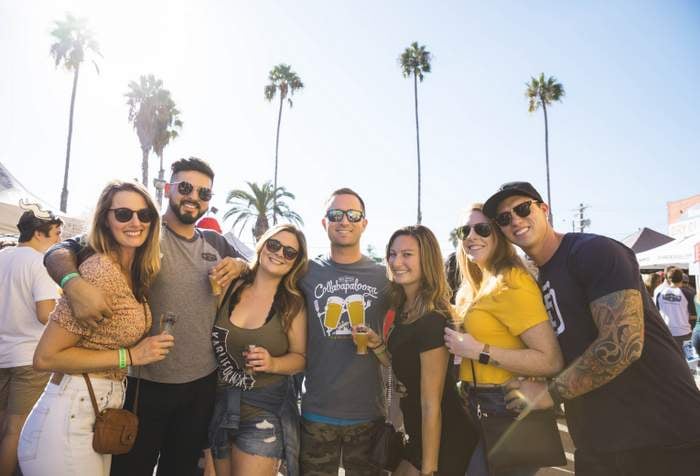
In business, regardless of industry, mistakes will be made. While many of the mistakes we see craft breweries make are common to business in general, a few are more specialized to the trade. Below we outline the top 10 legal mistakes start-up breweries make, in no particular order, along with some words of wisdom.
1. Choosing the wrong ownership structure for your goals.
While there are several types of business entities, each with its pros and cons, the general aim is always to separate (and thereby protect) personal assets from business liability. Limited liability companies and corporations are the most common types of business entities, but partnerships are not entirely uncommon either.
No matter the form you chose, be sure to treat the entity for what it is: a separate entity. By not intermingling company funds with your own, and carefully documenting the capacity in which you sign contracts etc., you will be able to shield your personal assets from business liability should things go sour down the road.
Be sure to form your entity early. If you start your licensing process before having formed an entity, then it’s possible that you’d have to redo the entire process after the fact.
2. Not Complying with Securities Laws.
In an effort to get off the ground, craft breweries tend to seek funds from wherever they can find them. This is both understandable and tricky. Crowdfunding is the first problem we see on a regular basis. Sites like Kickstarter do not fall under securities laws because people are technically only giving money (which is considered taxable income), rather than buying equity. In an effort to incentivize participation, we have seen startups offer beer before they have the license all wrapped up. Remember: in most states, you cannot give away beer and you cannot sell beer without a license. You have to be very careful about what you offer potential donors on these sites.
More traditional revenue raising — exchanging equity for money — generally requires registration with the SEC and likely your state as well. This option requires a good deal of onerous record-keeping and formalities, which generally should be avoided when possible. Luckily, there are a few exceptions to the need to registration under something called Regulation D. The three key points (though there are always a few exceptions) to remember are:
(1) public advertisements of your offering are banned. Social media posts are sticky point legally, but better be safe than sorry;
(2) the law differentiates between your interactions with accredited investors and unaccredited investors; and
(3) even if you do not have to register with the SEC, you will still have to file (in fact, you will have to file not only with the SEC but also any state in which your investors reside).
3. Not registering or updating with federal, state, and local government agencies.
From the start, before you even brew beer, you will likely be required to register with your local government for a business license; the state government for everything from alcohol licensing, seller’s permits, excise taxes, income taxes, unemployment, entity changes and recycling requirements; and the federal government for a brewer’s notice, the Food & Drug Administration, the IRS, the SEC, and more excise taxes.
Remember, many innocuous events will trigger an update and require communication with agencies back down the list: Address changes, name changes, facility updates, ownership changes, etc. When in doubt, double-check!
4. Entering agreements and contracts without counsel.
These issues become even trickier when you realize that the rules against giving a thing of value to a retailer can make not charging interest a compliance violation. In an effort to cut someone a break, you could be subject to additional fines yourself.The number of contracts that pass beneath your pen will be substantial, and most of them seem to fall into two categories: Seemingly harmless and entirely indecipherable. The truth is you shouldn’t sign either type without having counsel look over them first.
First, no matter how simple it may seem, there may be laws at play that are not mentioned and, therefore, overlooked. This is especially common with distribution contracts, which tend to have very specific laws mandating what can and cannot be agreed to. These laws vary by state, and frequently the distributors are as unaware of their import as you are, but you will be stuck with those laws nonetheless.
Second, always assume when you sign a contract that you will be stuck with the other party for a very long time. Again, there are all types of laws at play (that you may not be aware of), and the consequences can be huge. This goes for leases, founder’s agreements, operating agreements, investor agreements, equipment purchases, supplier contracts, employment agreements, distribution agreements, and any other document you are asked to sign. While we obviously recommend consulting an attorney, sometimes a CPA or a broker is equally able to be of assistance.
5. Failure to establish an intellectual property strategy.
The primary types of intellectual property utilized in craft beer are: trademarks (words or images that you choose to represent your business and products); trade secrets (anything with value that would lose value if publicly known); and copyright (a “fixed work of art” with at least minimal amounts of creativity).
Craft breweries must determine the types of intellectual property they need and act to protect that property as soon as possible to avoid monumental issues further down the road. If you have a beer recipe that you believe will put you on the map and want to protect it, then trade secret is your only option. Trade secrets have to be treated like secrets to be valid, though, and it is important to know what does and does not count on that front.
Similarly, if you develop a name in the industry that later on is discovered to infringe another company’s mark, then you may be forced to rebrand. Rebranding is time-consuming, thoroughly unpleasant and frequently expensive. We recommend avoiding that from the beginning by clearing and trademarking your brand before you sink a heavy investment into it.
6. Not securing the right insurance.
Insurance is a vast creature but that doesn’t mean your coverage will be equally comprehensive. To begin, we recommend finding and working with an industry specific broker as they will be able to more effectively anticipate your needs. There are a list of requirements that might affect you depending on your entity type, size, location, whether or not food trucks will visit, the number of employees you will have, etc.
The possibilities can be endless, but the fact of the matter is that few craft breweries can afford to self-insure. In the event you do not have sufficient funds to cover a claim, you should be able to protect your personal assets with a business entity, but there are exceptions even to that.
7. Not setting up and maintaining proper bookkeeping.
Failing to remit correct taxes to correct agencies at the correct times can lead to audits and fines. But the alphabet soup agencies referenced in No. 3 have different deadlines for different requirements, so effective bookkeeping is a requisite to running a profitable craft brewery. Assets and expenses, amortization, price setting, and other banal terms can play a large role in your profit margin.
Unpaid accounts are costly to collect against and, even when successful, can be prohibitively slow. Remember that No. 4 said to have all of your contracts looked over by a professional since there can be ways to streamline this process. But even then, these issues become even trickier when you realize that the rules against giving a thing of value to a retailer can make not charging interest a compliance violation. In an effort to cut someone a break, you could be subject to additional fines yourself.
8. Violating employment and labor laws.
All too often we see craft breweries misclassify their workers. Many breweries want to label their workers as independent contractors for tax reasons, but the state and federal governments have their own ideas about what makes someone an employee. If you misclassify an employee as an independent contractor then you could be subject to all types of issues, including everything from taxes and workers’ compensation to wage and hour laws and OSHA compliance. One small mistake can quickly become an avalanche if a disgruntled employee decides to make a few quick phone calls.
9. Violating intellectual property and alcohol laws via social media.
We discussed choosing and implementing an intellectual property strategy above, but we also frequently see craft breweries accidentally violating the intellectual property of others or inadvertently violating ABC and TTB regulations about advertising. As a baseline rule, you should not use pictures taken by and of others without the permission of everyone involved. Copyright law, privacy rights and trademark laws are all implicated in such situations. Use releases whenever you take a picture of someone else and keep these on file indefinitely. Be wary of cutting and pasting artwork, photographs, text and anything really without express permission from the creator. Lastly, be very careful about advertising on behalf of a retailer as there are many restrictions on this type of interaction that do not seem intuitive to most breweries.
10. Failing to properly use and qualify resources.
The legal framework surrounding the production and sale of craft beer is colossal and confusing. There is no shame in admitting that, and the most successful craft breweries share two things in common: delicious beer and utilizing available resources.
There is no reason to go it alone, and there is an army waiting outside to help you do what you do best: brew. From attorneys and CPAs to architects, brokers, insurance agents and industry consultants.
Another important asset that should be heavily utilized whenever possible are trade organizations. Local brewers guilds, state associations and national associations all offer education, industry-specific resources and networking opportunities. It’s ususally cheaper to do something right the first time, so be sure to take advantage of the human capital catering to the craft beer industry.
 Candace L. Moon is a San Diego-based attorney who has spent the last four years dedicating her law practice to the craft beer industry. She has worked with over 100 craft breweries and craft breweries-in-planning nationwide, handling business entity formation, alcoholic beverage law, contract review, trademark law, as well as other legal needs. Her clients range from Green Flash and Drake’s to Jamil Zainasheff’s Heretic Brewing. Moon’s undergraduate degree is from the University of Virginia and her juris doctorate is from Thomas Jefferson School of Law in San Diego, Calif. She has been a member of the California State Bar since 2008 and the Brewer’s Association since 2009. Contact her at [email protected]; her website, www.CraftBeerAttorney.com; or her Twitter account,CraftBeerAttny.
Candace L. Moon is a San Diego-based attorney who has spent the last four years dedicating her law practice to the craft beer industry. She has worked with over 100 craft breweries and craft breweries-in-planning nationwide, handling business entity formation, alcoholic beverage law, contract review, trademark law, as well as other legal needs. Her clients range from Green Flash and Drake’s to Jamil Zainasheff’s Heretic Brewing. Moon’s undergraduate degree is from the University of Virginia and her juris doctorate is from Thomas Jefferson School of Law in San Diego, Calif. She has been a member of the California State Bar since 2008 and the Brewer’s Association since 2009. Contact her at [email protected]; her website, www.CraftBeerAttorney.com; or her Twitter account,CraftBeerAttny.





virtualCableTV says
Websites should vet the so-called expertise of their bloggers making their wild@ss claims about legal matters.
// for example…
9. Violating intellectual property and alcohol laws via social media.
Was little more than FUD and outright ca-ca de toro. Most of us people who are involved in the business or with businesses regulated by beverage regulations know full well how to work-around the scare mongers and the bully + bullsh!t lawyers.
For example a simple notice on the storefront announcing all who enter the premises will be recorded by security cameras or have pics of themselves taken with cams that are to be used for marketing; their entry is then tacit permission to proceed with imaging and meets all good faith doctrines.
Secondly, the stinkiest claims about copyright really get to me when people simply do not know what the are talking about as copyright law (despite the three tier rules) allows taking pics of any type of product with a label that allows the pic to be used in advertising the sale of the product. Look at the liquor store ads in the newspaper to come to the conclusion this blogger is full of it.
Finally, one must remember U.S. universities continue to graduate tens of thousands of “lawyers” each year 99% of them cockroaches looking for any opportunity to bully + bullsh!t others into misleading compliance.
// for example an invaluable lesson into why most copyright claims are bully + bullsh!t…
http://blog.virtualcable.tv/index.php/2011/03/misinformation-about-copyright-law-registrations/
People should not try to bullsh!t their way to credibility as somebody who has the experience is usually around to call you on it.
Great article: Top 10 legal mistakes made by craft breweries http://t.co/LClFBTd3MW via @craftbrewingbiz
RT @mrbrewreview: Top 10 legal mistakes made by craft breweries http://t.co/d7o1GTq1xI via @craftbrewingbiz
RT @CraftBeerAttny: The Top 10 Legal Mistakes Made by Craft Breweries #beerlaw http://t.co/QjaciYyt18
RT @mrbrewreview: Top 10 legal mistakes made by craft breweries http://t.co/d7o1GTq1xI via @craftbrewingbiz
Top 10 legal mistakes made by craft breweries http://t.co/d7o1GTq1xI via @craftbrewingbiz
@basevintner “@BeerLawCenter: Top 10 legal mistakes made by craft breweries http://t.co/b0XF3buwU0 @craftbeerattny @CraftBrewingBiz”
RT @BeerLawCenter: Top 10 legal mistakes made by craft breweries http://t.co/JW8NKSW1P1 @craftbeerattny @CraftBrewingBiz
RT @CraftBrewingBiz: Top 10 legal mistakes made by craft breweries: http://t.co/eMTIbdbCx9 Thanks as always to @CraftBeeryAttny
Top 10 legal mistakes made by craft breweries http://t.co/XLNKzJhMCF
RT @TheBrewInsurer: Top 10 legal mistakes made by craft breweries http://t.co/LglPidwrPJ via @craftbrewingbiz
A good read…
Top 10 legal mistakes made by craft breweries http://t.co/OeD3jmKjbF
Top 10 legal mistakes made by craft breweries:… http://t.co/EVGPp2oJTM
Todd Parker liked this on Facebook.
David Lengvarsky liked this on Facebook.
Alexander Drake liked this on Facebook.
Marko Vasiljevic liked this on Facebook.
RT @crsimp01: Top 10 legal mistakes made by craft breweries http://t.co/crF91JOb94 via @craftbrewingbiz
RT @crsimp01: Top 10 legal mistakes made by craft breweries http://t.co/crF91JOb94 via @craftbrewingbiz
RT @crsimp01: Top 10 legal mistakes made by craft breweries http://t.co/eRJMxXxa9x via @CraftBrewingBiz
Top 10 legal mistakes made by craft breweries http://t.co/crF91JOb94 via @craftbrewingbiz
RT @CraftBrewingBiz: Top 10 legal mistakes made by craft breweries: http://t.co/eMTIbdbCx9 Thanks as always to @CraftBeeryAttny
Top 10 legal mistakes made by craft breweries http://t.co/LglPidwrPJ via @craftbrewingbiz